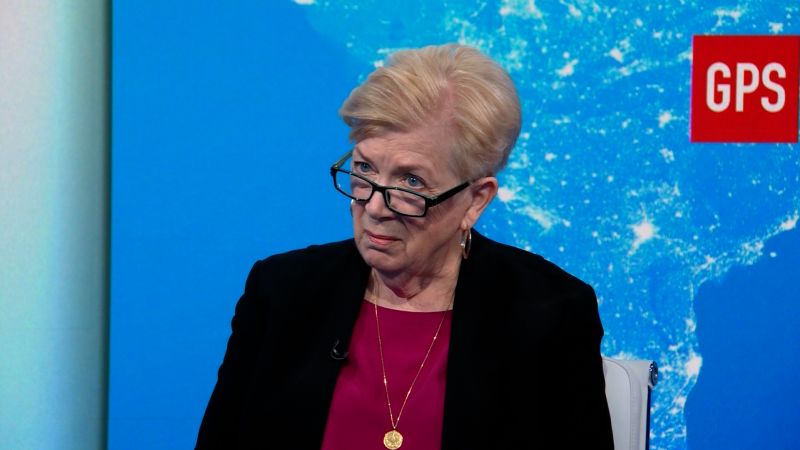It was a beach day, by Maine standards — slightly overcast and moderately balmy, with a hint of balsam in the air. But on a peak-summer morning in July, 225 people steered clear of state parks and went to Curtis Memorial Library in Brunswick instead.
They were young and old, in strollers and on walkers and strutting the latest technical sandals. They wore pigtails, baby slings, ironic T-shirts, a head scarf, a lobster hat, a crown, a tiara and halos of white hair. Many carried colorful hardcovers and paperbacks that appeared to have served multiple generations of readers.
The crowd wasn’t at Curtis to meet a celebrity memoirist or best-selling novelist. They were there for a children’s book event: Sarah McCloskey, the real-life inspiration for “Blueberries for Sal” (1948), was at the library to read a handful of classics by her father, Robert McCloskey, who also wrote “Make Way for Ducklings” (1941) and “One Morning in Maine” (1952), among others. The event was one of several celebratory occasions planned around The Art of Wonder, an exhibit of 68 original illustrations by the two-time Caldecott Award-winning author, which will be on display until Oct. 15.
As “Sal” McCloskey, now 78, settled into an armchair at the front of Morrell Reading Room, a hush fell over the undulating sea of children at her feet. It was as if an adult version of Matilda, Pippi or Eloise had just strolled into the room in a yellow T-shirt and khakis. McCloskey’s hair is salt and pepper — gone is the tousled mop her father drew with India ink — but she still felt familiar, like an old friend you haven’t seen since preschool. This sense of abiding affection was a powerful reminder that certain characters imprint on our DNA — and that the writers and artists who conjure them have a bit of magic in their fingertips.
At the beginning of her introductory remarks, Joyce Fehl, the library’s development and marketing manager, asked the crowd, “Who has goose bumps?”
Taking in the packed room, where every chair was full, as were many laps, McCloskey answered, “I have tears.”
Then she picked up “Time of Wonder” (1957) and started to read.
In the pecking order of picture books, McCloskey’s have been at the top of the heap for almost 80 years. They celebrate little milestones — loose teeth, outings that lead to unexpected adventure — and the abundant beauty of New England. Without moralizing or finger wagging, they also highlight the hard work of parents, fishermen and nature.
Kids love McCloskey’s stories because they’re long — the better to prolong lights-out — and minutely illustrated down to the finest blade of grass. A drawing of a seal includes whiskers and eyebrows. Circles on a watercolor Parcheesi board are shaded just so. Even if you’ve never harvested fruit or given a hoot about ornithology, you can hear the “kuplink, kuplank, kuplunk” of berries hitting the bottom of a tin pail or the plaintive cry of a loon: “Luh-hoo-hoo-hoohoo-hoooh.”
Reading one of these classics to a wave-tossed wee person fresh out of an outdoor shower unlocks a level of beach vacation nirvana that makes the packing, whining and reapplication of sunscreen worth the bother. To visit McCloskey’s island world in the dead of winter is to be reminded that warmer days are ahead — and, in the meantime, hibernation has it perks.
“There is such broad appeal to these books,” said Liz Doucett, the library’s executive director. “‘Make Way for Ducklings’ is about finding a safe home. ‘Blueberries for Sal’ is about going out and adventuring with your mom. They’re books that resonate, it doesn’t matter how old you are.”
Planning for The Art of Wonder was underway before the pandemic; when Doucett and her team picked it up again, they hoped McCloskey’s art would lure readers back to the building. In the first month of the exhibit, the library hosted more than 25,000 guests (up 22 percent from July 2019), including visitors from 45 states, 11 countries and five continents. The number of residents signing up for new library cards reached 281, almost double the number from last July. Judging from an informal show of hands, one-third of the people gathered for Sal McCloskey’s visit were first-time guests at Curtis.
“We had a woman who had not been in the library since she was a kid,” Doucett said. “She loved it so much, she got a library card, and then she went and got her mother and her mother got a library card.”
The pictures are on loan from Emporia State University in Kansas, where they’re part of the May Massee Collection (Massee was McCloskey’s longtime editor, who also worked with Don Freeman, creator of “Corduroy,” and Ludwig Bemelmans, the mastermind behind Madeline).
Sprawling elegantly over two floors, the exhibit contains sketches, drawings, watercolors and brush and ink images from five picture books, including McCloskey’s lesser-known, slightly psychedelic final one, “Burt Dow, Deep-Water Man” (1963). A local teenager described it as the author’s “Lucy in the Sky With Diamonds.”
“This is impeccable brush work,” said Scott Nash, executive director of the Illustration Institute, which framed and curated the show. “Bob has a confidence to his line that is rarely seen these days.”
That’s how insiders refer to the author: in the present tense, as “Bob.” His daughter is no exception.
McCloskey read four stories aloud, employing different voices and occasionally getting choked up before crisply forging ahead. Despite her evident familiarity with her father’s words, McCloskey never turned the books to show the pictures to audience members. It didn’t matter: Several followed along in their own copies. Others scooted closer and closer until they were practically sitting on McCloskey’s shoes.
In an interview, McCloskey said her father’s fame always took him by surprise: “He would have felt humbled by the fact that people continue to revere him 20 years after his death.”
McCloskey remembers times when her parents “didn’t have scratch for money.” The family spent most of the year on Scott Island, near Little Deer Isle, where she posed for sketches in her father’s boathouse studio. She said, “It was nice being with him that way.”
McCloskey and her sister were welcome to visit while their father was working: “The deal was, we could come in our bare feet, but if we stepped on a thumb tack, we didn’t squeal. We just removed it.”
She described her father as self-effacing, funny, intelligent — “his IQ was probably off the charts” — and also “a bit emotionally unstable.” McCloskey said, “My dad definitely had issues. Anxiety, depression, that kind of thing. Anxiety, mostly. I don’t think he ever really felt secure at any point.”
Not long after a hospitalization in Mexico City in the late-1950s, Robert McCloskey stopped writing books. He made puppets — “stop gap motion picture stuff,” his daughter explained. “They never really got off the ground. But he was always pushing himself to a different level, experimenting one way or another.”
How does McCloskey feel about being immortalized in her dad’s work?
“I have my moments with it. Moments when it’s just totally embarrassing because the accolades that I get for being Sal are something that I didn’t earn,” she said. “There’s the character Sal and there’s the other one. And the other one’s me. This is a job I’ve been given to do, and I need to do it well. It’s all about book sales and that kind of thing, and I have to be a nice gracious lady.”
McCloskey, a retired lawyer, added, “I spent my life working hard to make a living and to take care of two kids on my own with little in the way of child care. All of a sudden to have royalties coming in, to make things secure — that’s a blessing.”
The world Robert McCloskey wrote about has changed drastically. Scott Island now has Wi-Fi, although McCloskey still relies on a radio for information. (She spends three seasons on the island and returns to Ellsworth, Maine, for the winter.)
Even the way people speak has changed, she said. “The speech was different in every little enclave of Maine. There were dialects.” And then there are environmental catastrophes: “With the warming of the waters, we’ve lost the fish,” McCloskey said. “I have watched the shore change in terms of which little beings inhabit it now as opposed to back when.”
Strolling through The Art of Wonder after McCloskey’s event, it was impossible not to feel hopeful about the state of the world. A pair of bespectacled children peered at duckling sketches with the gravity of historians. A retired kindergarten teacher recalled reading McCloskey’s books to three decades of students. On the second floor, framed drawings of Sal McCloskey and her mother hung on a wall near Curtis’s library of things, which includes a pickleball set, a food processor, a scanner — and, yes, a blueberry rake.
“Take a farewell look at the waves and the sky,” Robert McCloskey wrote in “Time of Wonder,” which chronicles a summer in Maine and ends with the arrival of fall. “Take a farewell sniff of the salty sea. A little bit sad about the place you are leaving, a little bit glad about the place you are going.”







More News
Sony and Apollo in Talks to Acquire Paramount
‘The Fall Guy’ Fizzles With $28 Million in Ticket Sales
More Flooding Expected in Houston as Rain Drenches Texas